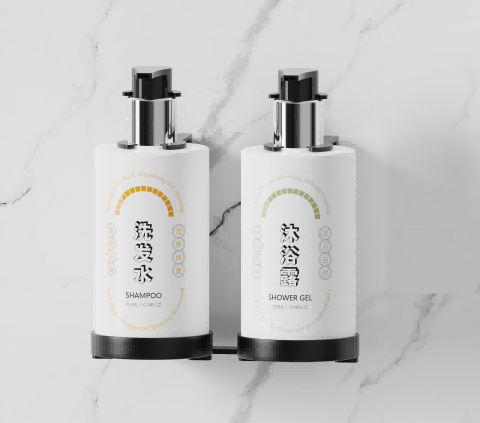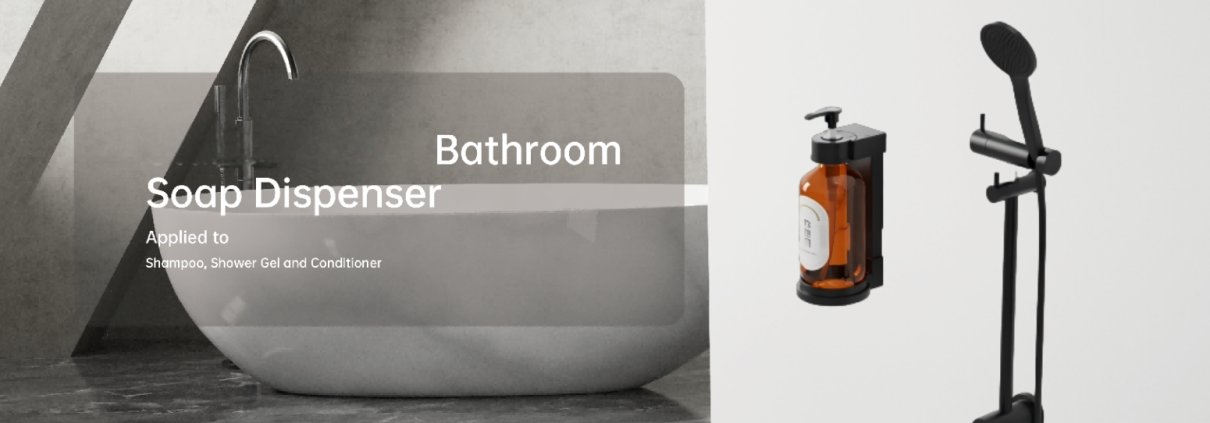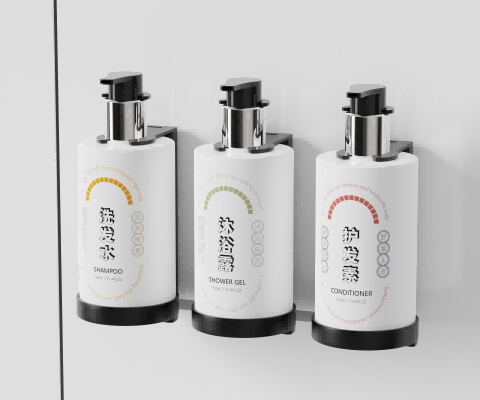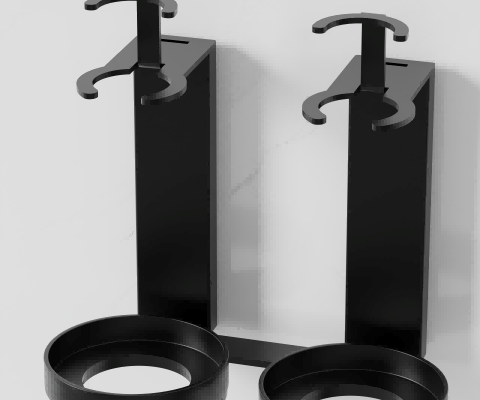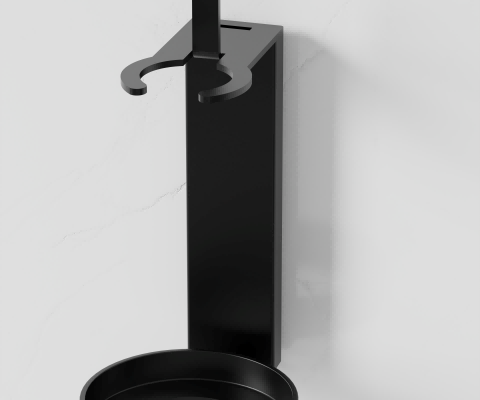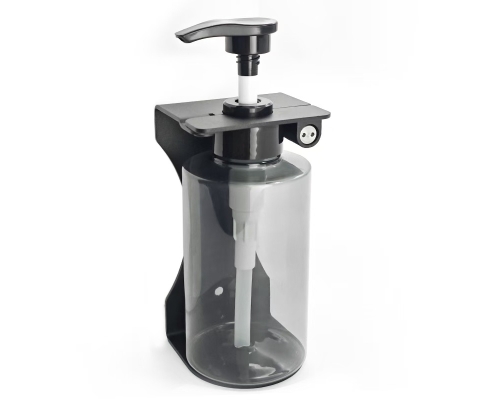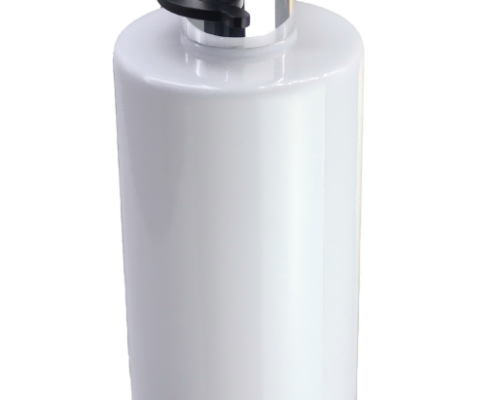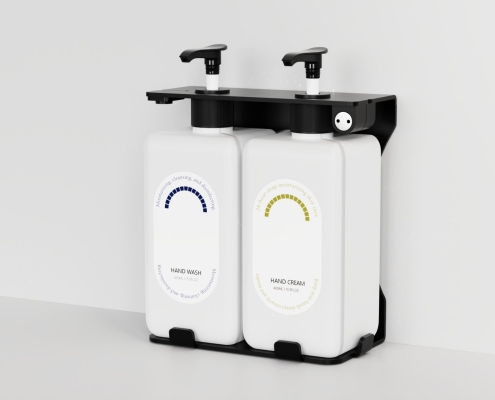The December 2025 Roundup: How Scent, Sustainability, and Smart Tech Are Reshaping Hospitality Supplies
If you want to understand where the hotel supplies industry is headed, look no further than the floor of a major trade show. This December, the 31st Guangzhou International Hotel Supplies Fair served as a powerful crystal ball. While robots whirred and new textiles were admired, the most significant shifts weren’t just in the products themselves, but in the fundamental logic of the business. The industry is pivoting from selling discrete items to providing integrated, value-driven solutions—a transformation driven by smart technology, an uncompromising push for sustainability, and a deeper infusion of culture.
- The Guangzhou Fair: A Microcosm of Metamorphosis
Held from December 18-20, 2025, the Guangzhou Fair remains the undisputed heartbeat of the Asia-Pacific hospitality sector. This year’s event, sprawling across 250,000 square meters with over 3,000 exhibitors, drew a record crowd exceeding 220,000 professionals. The sheer scale underscored the industry’s resilience and growth.
Beyond the numbers, the narrative was clear. The buzz was no longer solely about who had the whitest towel or the most durable dinnerware. Instead, the conversation centered on integrated systems and holistic value. One standout example was the array of smart, IoT-connected aroma diffusers that promised not just a pleasant scent, but a complete “olfactory asset management” platform for hoteliers. Another was the proliferation of “closed-loop” linen systems, where suppliers offer not just textiles, but also guaranteed take-back, professional laundering, and lifecycle tracking. This shift from product vendor to solution partner was the dominant theme echoing through the halls.
- The Intelligence Imperative: IoT and Data Take Center Stage
The most definitive trend of 2025 is the seamless embedding of intelligence into every corner of the hotel supplies chain.
- Operational Intelligence: The Rise of the Connected Back-of-House
The kitchen and service areas are becoming hubs of data-driven efficiency. Automatic stir-fry robots and autonomous delivery robots are now equipped with sensors that track usage patterns, predict maintenance needs, and even integrate with inventory management systems to alert when ingredient supplies are low. This isn’t just automation; it’s about generating actionable data that reduces downtime and optimizes labor costs.
- Ambient Intelligence: Curating the Guest Experience
Intelligence is moving into the ambient environment to create personalized and memorable stays. The launch of the industry’s first fourth-generation “5S” standard for scent machines represents a leap forward. These IoT-enabled devices allow for remote, zone-by-zone control of scent profiles via a central dashboard. A hotel can program a vibrant, citrus aroma for the gym in the morning, a calming lavender for the spa in the afternoon, and a subtly luxurious signature scent for the lobby in the evening. Suppliers like “Amos” are framing this not as a cost, but as a strategic investment in “olfactory branding” that can enhance perceived value and, as claimed, reduce management costs by up to 30%.
III. The Green Blueprint: Sustainability as a Core Business Strategy
Sustainability has evolved from a marketing checkbox to a non-negotiable operational and strategic pillar, driven by both policy and potent consumer demand.
- The Circular Economy in Action
The linear “take-make-dispose” model is being aggressively challenged. Exhibitors prominently featured:
Closed-Loop Linen Programs: High-quality linens and towels designed for 300+ wash cycles, backed by supplier take-back programs for recycling into new products.
Plant-Based Amenities: Shampoo bottles, combs, and toothbrushes made from biodegradable materials like PLA (polylactic acid) derived from corn starch or sugarcane.
Chemical Management Systems: Advanced, concentrated cleaning solutions paired with smart dispensing systems that minimize waste, plastic packaging, and chemical runoff.
- Beyond “Less Bad”: Toward Regenerative Design
The leading edge of this trend is moving beyond reducing harm to creating positive impact. This includes partnerships with environmental NGOs, sourcing materials that support biodiversity, and developing products with a clear and verifiable end-of-life pathway. For procurement officers, the key metrics are shifting from just unit price to Total Cost of Ownership (TCO) and Environmental Impact Scores.
- The Soul of the Stay: Cultural Infusion and Experiential Design
In an era where generic design fails to inspire, authenticity is the new currency. The fair highlighted a powerful trend toward cultural storytelling through physical supplies.
- From Generic to Narrative-Driven
Products are becoming touch points of a local narrative. This was evident in collections featuring batik-printed pillowcases from Guizhou, ceramics glazed with traditional motifs, and amenity kits packaged in fabrics inspired by intangible cultural heritage. These items transform a standard room into a culturally immersive capsule, offering guests a unique sense of place that cannot be replicated by a global chain’s standardized decor.
- The “Atour Model”: Blurring Lines Between Stay and Retail
Hotel group Atour’s staggering success—with Q3 2025 retail sales (primarily of sleep systems) soaring 75.5% year-on-year to RMB 990 million—validates this experiential approach. It demonstrates that guests are willing to purchase the tangible components of a memorable experience. However, this model also sparks a crucial debate on balancing retail innovation with core hospitality service excellence, and the risks of brand dilution if product quality does not match marketing promise.
- Navigating the New Landscape: Strategic Takeaways for Hoteliers
For hotel owners, operators, and procurement specialists, these converging trends present both challenge and opportunity. Here is a strategic action plan:
- Audit for Integration.
Re-evaluate your supply chain. Are you purchasing isolated items or partnering with providers who offer smart, integrated systems? Prioritize suppliers who provide data insights, lifecycle management, and can demonstrate a clear ROI on smarter, greener products.
- Embed Sustainability in Your RFP.
Rewrite your procurement criteria. Include specific, measurable requirements for recycled content, biodegradability, carbon footprint, and take-back programs. Calculate TCO, not just upfront cost.
- Curate, Don’t Just Decorate.
Work with designers and suppliers to select items that tell your property’s unique story. Whether it’s a connection to local artisans, landscape, or history, let your supplies be a conduit for authentic guest connection.
- Pilot and Partner.
You don’t need to revolutionize everything at once. Start with a pilot project—implement an IoT scent system on one floor, or launch a premium, culturally-themed suite with curated amenities. Partner with innovative suppliers on these pilots to co-develop solutions.
Conclusion: The Future is Fused
The headlines from December 2025 reveal an industry at an inflection point. The future of hotel supplies lies not in any single gadget or fabric, but in the **fusion of intelligence, responsibility, and soul. The winning suppliers will be those who act as strategic partners in crafting efficient, sustainable, and deeply engaging guest experiences. For forward-thinking hoteliers, the supplies they specify are no longer mere operational necessities; they are the essential building blocks of their brand’s future identity and profitability. The message is clear: adapt to this integrated value model, or risk being left behind in a generic, commodity-driven past.
What’s your take on these trends? Is your property exploring smart systems, circular supply chains, or cultural partnerships? Share your thoughts and experiences in the comments below.


